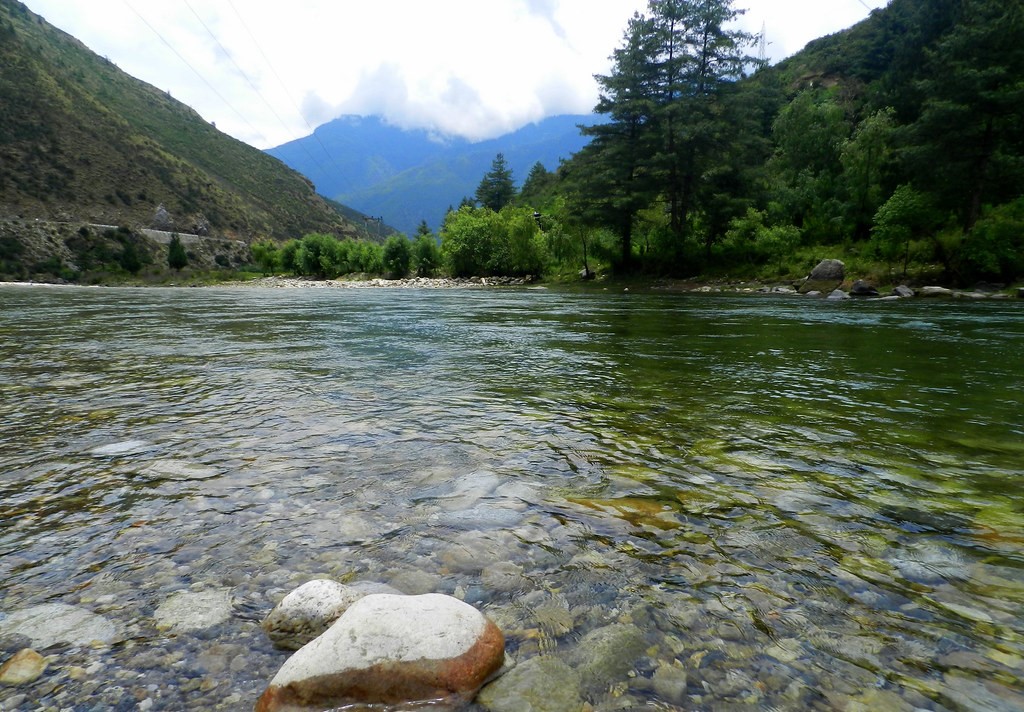
The Paro Chu

The Paro Chu, often referred to as the Paro River, is a major river in Bhutan that flows through the picturesque Paro Valley in the western part of the country. Originating from the glacial regions of the Himalayas, the river meanders through lush landscapes and fertile valleys, providing vital water resources for agriculture and contributing to the region’s scenic beauty. The Paro Chu is not only important for its ecological and economic value but also for its cultural significance, as it flows near several historic and religious sites, including the famous Paro Dzong and the iconic Tiger’s Nest Monastery (Paro Taktsang). Its clear, cold waters and serene surroundings make it a popular spot for various outdoor activities, including fishing and rafting, and it plays a crucial role in supporting the local communities and their traditional way of life.
Here’s a point-wise summary of the Paro Chu:
- Location: Flows through the Paro Valley in western Bhutan.
- Source: Originates from the glacial regions of the Himalayas.
- Features: Meanders through lush landscapes and fertile valleys.
- Ecological Importance: Provides vital water resources for agriculture.
- Cultural Significance: Passes near historic and religious sites such as Paro Dzong and Tiger’s Nest Monastery (Paro Taktsang).
- Outdoor Activities: Popular for activities like fishing and rafting.
- Economic Role: Supports local communities by contributing to agriculture and traditional livelihoods.
- Scenic Value: Enhances the natural beauty of the region and is integral to the picturesque Paro Valley.
Related
- Bumdra Goemba
- Chelela Pass
- Chumphu Nye
- Dasho Nishioka Chorten
- Dobji Dzong
- Drakarpo
- Druk Choeding Lhakhang
- Drukgyel Dzong
- Dzongdrakha Monastery
- Farm House
- Jangsarbu Lhakhang
- Jangtsa Dumtseg Lhakhang
- Kichu Lhakhang
- Namgay Artisanal Brewery
- Paro Airport View Point
- Rinpung Dzong
- Sangchen Choekhor Institute
- Ta Dzong
- Tachog Lhakhang
- Taktshang – Tiger’s Nest
- The Paro Chu
- Ugyen Pelri Palace
- Zangthopelri Lhakhang
- Zuri Dzong
Need Assistance?
Call Us : +975-17351324
+975-17495729
Email Us : adbhutantours@gmail.com
Send your Queries
